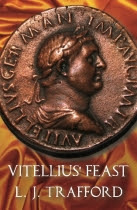I have been SO looking forward to picking this up ever since J.K. Rowling revealed the title MONTHS before the book was released. So, quite a while. It's been
three years since the last Strike novel - and the first ever novel in this series (
The Cuckoo's Calling), was released way back in 2013! (Just to think, the political chaos now exhausting us all was still years away then...)
Anyway, back to more pleasant thoughts. J.K. Rowling, in the acknowledgements, said (as Robert Galbraith) that this was the most complex of the Strike novels she had written so far, and she's not wrong. At 656 pages, (over 100 more than
Career of Evil), this book is not only a thrilling and mind-bending read, but also a pleasingly substantial one.
We begin in the aftermath of Robin and Matthew's wedding, which Strike inadvertently interrupted so well in his Strike way. However, this sets Robin and Matthew to arguing straight away, which is not helped by Robin finding out that Matthew had deleted Strike's voicemails. (By the way, it would be handy to re-read the last few chapters of
Career of Evil before getting onto Lethal White, as there are more important throwbacks to understand).
The rest of the novel takes off a year after the wedding. Strike has become famous thanks to finding the Shacklewell Ripper, and the agency has now become so busy that Strike has had to hire more staff. The cases they are handling are interesting but quite standard for private detective agencies. However, that all changes with two events. One - a young man called Billy, clearly suffering with some kind of mental illness, storms into Strike's office and claims he saw a child strangled when he was younger. Two - the Minister for Culture, Jasper Chiswell (Chizzle, as pronounced properly), hires Strike to help him uncover a blackmail case.
Due to commonalities in people and events, Strike is convinced that the cases are linked. And this is where
Lethal White becomes more complex, because in previous novels there was just one clear area of focus, whereas this is more than one but they are all interlinked.
There's also more focus on relationships in this one - Robin's deteriorating relationship with Matthew; Strike's relationship with a woman called Lorelei; and, of course, the increasing 'will they, won't they' between Strike and Robin. (I won't give that one away).
It all takes place against the backdrop of the London Olympics in 2012, and what I really enjoyed was reading about the fictional (though, undoubtedly, based on some real life aspects) of the background of the Olympics never really thought about. There's plenty more class issues and dilemmas, and the stark juxtaposition of Conservatism and Socialism provide an interesting undercurrent to the whole plot.
Galbraith, with his usual panache, weaves a web through London and beyond, from wealthy and aristocratic central London to the eclectic and more working-class outskirts. The murder in this one is certainly more palatable, (especially after
The Silkworm), and altogether more intriguing due to the many moving parts and myriad of people involved, not least the various families we come across.
If you've never picked up a Galbraith novel before, I highly recommend you do so now. It is one of the most enjoyable and satisfying series I've ever read, the puzzle pieces so brilliantly put together one by one throughout the whole.
